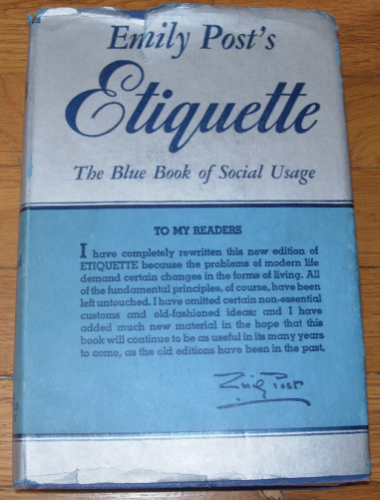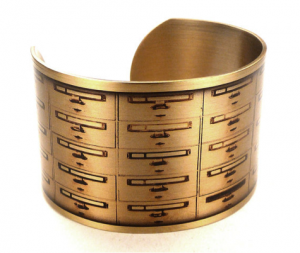As I waited for my first novel to launch, I was told by the experienced:
1) “Don’t expect to get on Oprah.” (I wasn’t.)
2) Waiting for launch was “the quiet before the quiet.” (Hey, thanks for depressing me!)
3) “You don’t need to spend money on an outside publicist.” (Very glad I ignored that one.)
And my very super favorite warnings:
4) “Don’t get too excited.” and “Don’t pay attention to reviews or Amazon numbers.” (To which I should have answered: “And where should I get the lobotomy?)
Which taught me this: Sometimes people are speaking from sour grapes, sometimes jealousy, and sometimes you’re simply dealing with an Eeyore. Sometimes folks are helpful; sometimes they’re not. Some will spend their time telling you, in gushing terms, how much their ‘they-love-me-to-death’ publisher is doing for them, them, and them, while you gulp and nod, thinking how at least your publisher sent out a net galley . . . wait, they did remember to do that, right? You’ll soon learn to identify these types, but how do you cope with them?
When my grandmother turned 97, we had a party for her. (Why at 97? We are an odd family.) “Grandma,” I asked, “what’s your very best advice for life?”
She looked at me, this warm woman who’d never complained about a person in her life (which makes me unsure that she actually is my biological grandmother, whereas there is no doubt that I received genetic material from my card-sharking kleptomaniac Grandma on the other side) and she said, “Be nice to people.”
I’m certain there are a number of snappish authors who advocate that dogs-should-eat-dogs (dog-eating authors who’ve managed to hit every bestseller list) but I believe in nice. I recommend that ‘nice’ (which, by the way, is entirely unlike being a doormat) color your career.
Start by answering your mail. All of it. When you receive a compliment, say thank you. When a reader complains that you’re biased, don’t rant at them or call them out in public! Ignore them or try to answer thoughtfully. I sent one such email to a ranting angry woman (who’d written to me because she thought I’d been disrespectful at one point in my first novel) and received a far more rational answer. We actually found some common ground.
I’ve read public postings by authors grumbling about the attention and letters they receive. God, I can’t believe what these people write to me! They want a book! They want a signature! They want me to speak to their class! Perhaps public complaining is a way of showing off how Very Important one has become. Or perhaps they really are stretched to the limit. We all know that feeling, but keep quiet in public. Every job has its down side, but do you want your doctor to write about how disgusting she found your rash?
 Limit public grumbling. Especially in print. Never online. And not about fellow writers, unless they were racist, sexist, or some other ist, or you’re looking to build a reputation contingent on your scathing wit or are looking for a public feud. Some writers do want this, or don’t mind being thought of as holding a knife, but this is not recommended for the average sarcastic, funny, or observant person—be certain you truly are thick-skinned enough to pull off calling writers out, because it comes back.)
Limit public grumbling. Especially in print. Never online. And not about fellow writers, unless they were racist, sexist, or some other ist, or you’re looking to build a reputation contingent on your scathing wit or are looking for a public feud. Some writers do want this, or don’t mind being thought of as holding a knife, but this is not recommended for the average sarcastic, funny, or observant person—be certain you truly are thick-skinned enough to pull off calling writers out, because it comes back.)
I don’t give bad reviews. If I dislike something, I keep it to myself—I never post a negative review on Amazon or Goodreads, or anywhere else. Not because I’m too wimpy to be honest, but because there are enough professional and amateur critics out there and I know how much even the best-intentioned criticism can hurt, and I don’t want to add one more bad word to their burdens. I either give five-stars or I don’t do anything. And trust me—writers notice. When I get a 4-star review on Amazon from someone I know, oh, I notice. Never underestimate the thin skin or pettiness of your fellow writers.
Do you plan to write about your life as an author? Most readers—and you are seeking readers, folks, not just the guffaws of your fellow writers—don’t want to hear complaints about how tired you are, how much you hate writing, and what a grind it is to revise. It’s better not to show exactly how the sausage is made—allow readers to enjoy the final product.
The proper audience for swearing about critics, cursing about Amazon reviews, or sneering at the efforts of more successful writers is your own trusted group of writer-friends. And if you have complaints about your treatment at the hands of your publisher, take them to your agent.
Don’t, don’t, don’t whine in public! You have published a book. This is a fantastic feat. Instead of showing off your sweat, let people see your happiness and gratitude.
Thank your agent, editor, copy-editor, cover designer—everyone. Flowers, candy and bagels are all nice. Paperweights. Wine. Etsy is a perfect source for unique gifts. A handwritten note of gratitude. Honestly, no matter how much you wish you got more, more, more from your publishers, these folks work hard for you.
And, when you’ve moved along, and maybe had to luck to sell a few books, and now you’re the one with the experience, be kind to new writers. Yes, I know there is a hierarchy, but it only takes a moment to shake a hand and give a genuine “good luck!” As one whose introduced herself to a very-important-writer or two, trust me, those cold shoulders are long remembered.
Last piece of how-to-be-nice advice: Readers don’t limit themselves to reading one book in their lifetime. If you’re a writer, you’re probably also an avid reader. Publicly praise great books you’ve read. (And please, not just classics written by dead people—unless you expect dead people to be your readers.)
Promote other writer’s books—even ones that come out the exact same week as yours. It’s good karma. You can’t expect help if you don’t provide it to others.
And it’s nice. Just like Grandma said.
(Portions of the above were taken from What To Do Before Your Book Launch by MJ Rose & Randy Susan Meyers)




